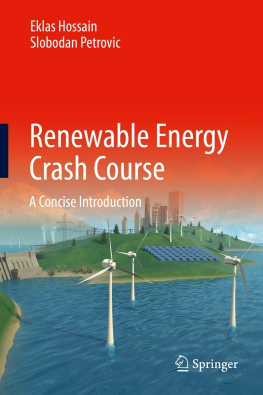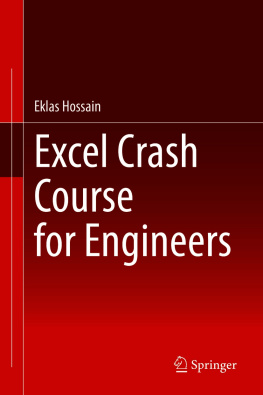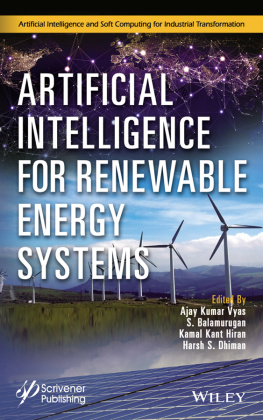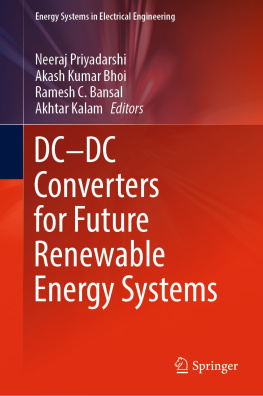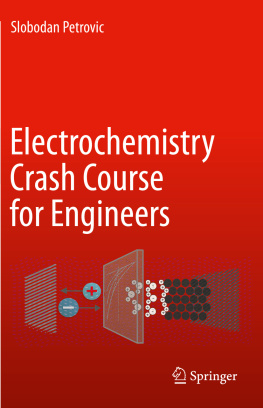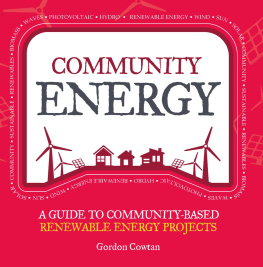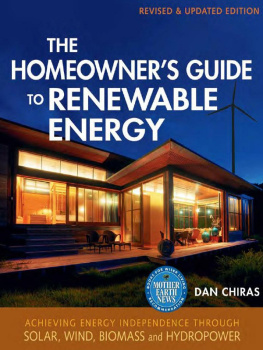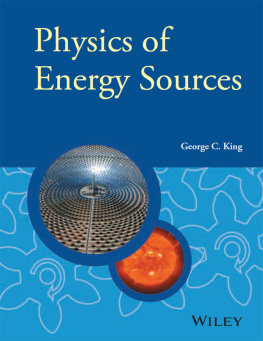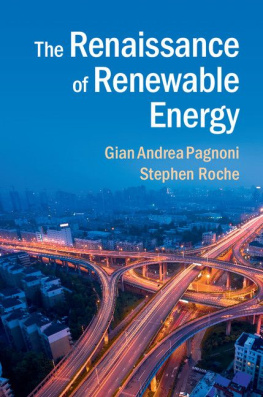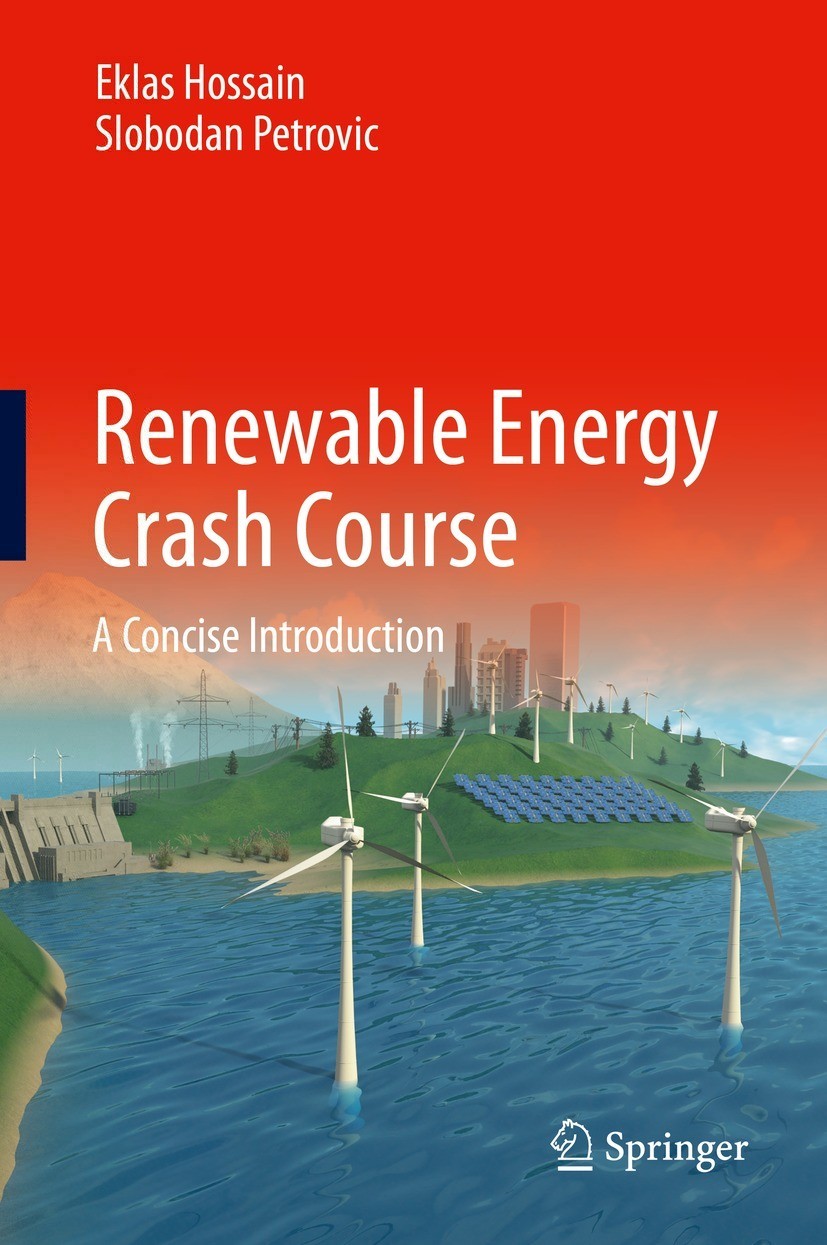Eklas Hossain and Slobodan Petrovic
Renewable Energy Crash Course
A Concise Introduction
1st ed. 2021

Logo of the publisher
Eklas Hossain
Oregon Institute of Technology, Klamath Falls, OR, USA
Slobodan Petrovic
Oregon Institute of Technology, Wilsonville, OR, USA
ISBN 978-3-030-70048-5 e-ISBN 978-3-030-70049-2
https://doi.org/10.1007/978-3-030-70049-2
The Editor(s) (if applicable) and The Author(s), under exclusive license to Springer Nature Switzerland AG 2021
This work is subject to copyright. All rights are solely and exclusively licensed by the Publisher, whether the whole or part of the material is concerned, specifically the rights of translation, reprinting, reuse of illustrations, recitation, broadcasting, reproduction on microfilms or in any other physical way, and transmission or information storage and retrieval, electronic adaptation, computer software, or by similar or dissimilar methodology now known or hereafter developed.
The use of general descriptive names, registered names, trademarks, service marks, etc. in this publication does not imply, even in the absence of a specific statement, that such names are exempt from the relevant protective laws and regulations and therefore free for general use.
The publisher, the authors and the editors are safe to assume that the advice and information in this book are believed to be true and accurate at the date of publication. Neither the publisher nor the authors or the editors give a warranty, expressed or implied, with respect to the material contained herein or for any errors or omissions that may have been made. The publisher remains neutral with regard to jurisdictional claims in published maps and institutional affiliations.
This Springer imprint is published by the registered company Springer Nature Switzerland AG
The registered company address is: Gewerbestrasse 11, 6330 Cham, Switzerland
Preface
This book was created over a period of more than 10 years and is based on the experience from classes taught as part of the renewable energy engineering program at the Oregon Institute of Technology. More than 500 program graduates, who work now in all aspects of renewable energy, have indirectly participated in the book creation through their insights, good and bad exams, assignments, and mostly passion to contribute to progress in energy generation and to protect the environment.
While the authors have collective experience in the energy field of close to 50 years in academia, industry, research labs, and humanitarian use of renewable energy, the educational approach when writing this book came mainly from direct experience in the classrooms and from the course notes. Over the years, the instructional approaches to teaching the topic were evolving until the right mix of the fundamental principles, technology description, device or plant designs, and environmental impact was established.
The book is an introduction to renewable energy, and it is deliberately written using easily understandable terminology and the right amount of information, without the need for upper-level mathematics or science. Every chapter provides practical examples, case studies, and simple exercises.
This book is primarily intended for engineering and science students, but also students from other disciplines with a general interest in renewable energy and curious high school students and professionals who need a quick introduction to renewable energy.
The authors hope that the book will inspire readers, who are first introduced to the subject, to develop passion and continue the study of renewable energy. The excitement of learning about solar and wind energy, hydroelectricity and biomass, ocean and geothermal energy, energy storage, and grid integration of renewables might be a step towards a better future for all.
Key Features of This Book
Simple language
Highly focused content
A case study at the end of each chapter
Concise, precise, and updated
Eklas Hossain
Slobodan Petrovic
Klamath Falls, OR, USA Wilsonville, OR, USA
Acknowledgments
We would like to thank hundreds of renewable energy engineering students, who have inspired us, with their insights, creativity and passion, to put our experiences in teaching renewable energy into a book.
The Author(s), under exclusive license to Springer Nature Switzerland AG 2021
E. Hossain, S. Petrovic Renewable Energy Crash Course https://doi.org/10.1007/978-3-030-70049-2_1

